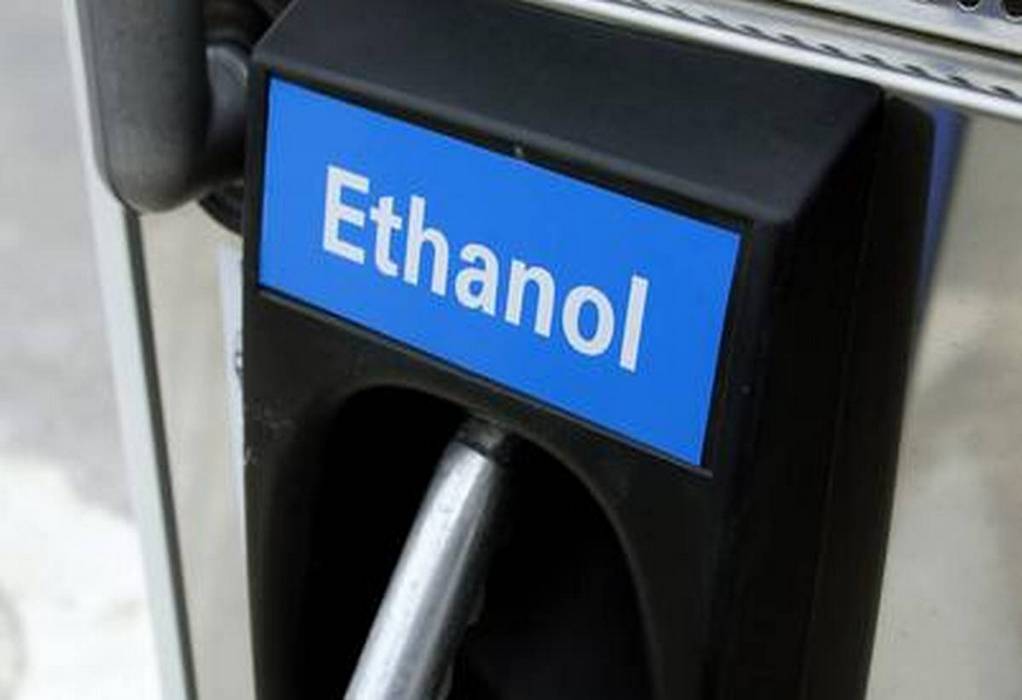The ambitious policy to promote ethanol-blended petrol will be bad for India’s food and water security.
Because, in a world moving towards electric vehicles (EVs), batteries and hydrogen, ethanol is less suited for India amid scarce land and water. We may end up compromising food security in the longer term.
In this context, this article illustrates the Ideological flaws/concerns with respect to the EBP program and the future challenges posed by it to India’s economic and food security.
Reasons why Ethanol was seen as a national imperative and an important strategic requirement?
Niti Aayog’s ‘Roadmap for Ethanol Blending’ report was prepared primarily on the following Premises.
Savings on crude imports from ethanol substitution: shifting to Biofuels will help India to save on its import bill. For instance, a successful E20 program can save the country $4 billion/year, or, Rs30,000 crores.
Decarbonization: Ethanol is a less polluting fuel.
Price support system and income generation for sugarcane farmers: blending was seen as a solution to the nation’s growing sugarcane and grain surpluses
What are the issues/concerns associated with NITI Aayog’s report?
First, the damage to the water table from an overproduction of sugarcane, one of the most water-intensive crops, or from that of other food grains is never accounted for.
Second, the report did not adequately address the possibility of substitutes such as an EV environment.
As a result, implementing an Ethanol blending program based on NITI’s Strategic vision will have implications on India’s economic and food security
What are the issues in India’s EBP program?
First, the issue of water scarcity.
India has to produce much sugarcane (It takes 2,500 liters of water to produce one kg of sugarcane.) and then convert surplus molasses into ethanol.
A task force on sugarcane and the sugar industry, under Ramesh Chand (Niti Aayog), estimated that sugarcane and paddy combined are using 70 percent of the country’s irrigation water.
On the other hand, India ranks 13th for overall water stress globally according to the World Resources Institute (WRI) data in 2019
Moreover, Groundwater resources are severely overdrawn in India for irrigation purposes. For instance, water tables declining at a rate of more than 8 cm per year over the 1990-2014 period.
Additionally, the government is promising thousands of crores in incentives for new distilleries and an administered price mechanism for the produce. Pricing guarantees may lead to excess sugarcane cultivation in the coming decade, sending underground water tables lower.
Secondly, issues in the timing of the EBP Policy.
The U.S decided to promote biofuels over two decades ago, when fossil fuels were critical and the US depended on West Asia for crude.
Moreover, The US was the world’s biggest producer of corn and Brazil of sugarcane, and it made sense for both nations to divert a portion of the output to ethanol.
The ecosystem suited traders, farmers, and politicians. Ethanol also helped stabilize corn prices.
But in India’s case, India is 20 years late to the ethanol party, when petrol is losing ground to EVs.
Thirdly, savings on crude imports from ethanol substitution is insignificant. Given India’s impressive revenues from in taxes on petrol and diesel alone in the last three fiscals (Rs8 trillion) and bulging forex reserve ($650 billion).
Fourthly, it is also unclear where the excess ethanol will go if EVs gain traction, or how viable will ethanol be if crude prices fall down in the future on the account of a shift towards renewable energy sources.
Fifthly, recent protests against farm laws and minimum support prices show how difficult it is for any government to take back government support given to support higher crop production.
Source: Business Standard
Tags: Blended petrol, Ethanol, India, Niti Aayog



Recent Posts
Hygenco Commissions Maharashtra’s First Green Hydrogen and Oxygen Facility to Power STL’s Net Zero Goals
India Invites Second Round of R&D Proposals Under ₹4 Billion Green Hydrogen Mission
BMTC Adds 148 Tata Electric Buses to Bengaluru Fleet, Strengthens Green Mobility Drive
MITSUI E&S Deploys Hydrogen Fuel-Cell RTG Crane at Yokohama’s Minami Honmoku Terminal
WinGD’s first ammonia-fuelled engine installed on EXMAR vessels
DP World and Asian Terminals Inc deploy first fleet of electric internal transfer vehicles in the Philippines
Lloyd’s Register Decarbonisation Hub Joins Mærsk Mc-Kinney Møller Center as Knowledge Partner
Wärtsilä engines selected to deliver reliable power for US data center